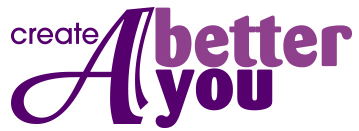One of the most important requirements for real change to take place (regardless of the issue) involves accepting the fact that the quality of our lives and how we feel about ourselves and others is not the result of outside forces– the events, people, and experiences that occur– but rather the result of how we choose to react to those events, people, and experiences.
Most of these behavioral and emotional choices, of course, happen subconsciously and therefore automatically; they manifest through the emotional and behavioral programming we are subjected to very early in life. This accounts for the fact that we often feel powerless, at the mercy of, or having to feel the effects of whatever or whomever is happening in our life. I’m sure you often hear people (maybe yourself) say that, “such-and-such or so-and- so made me (feel, think, or act) a certain way,” or, “I can’t help feeling this way. ” As bitter a pill to swallow as what I am about to say may be (and at first it may be very bitter indeed) nothing could be further from the truth.
Realizing and accepting that there is nothing outside ourselves that can make us do or feel anything; that we alwayschoose (however automatically) how to think, feel, or behave is called “Getting at Cause” with our lives. Once a person accepts being at cause, then real change can begin. We can teach the subconscious mind to trigger new, positive choices; the person takes both responsibility and active control over their life; sort of like rowing the boat rather than floating along at the whim of the currents. The feeling is marvelous and incredibly empowering.
A homework assignment I frequently assign to clients learning how to be “at cause” involves consciously tracking their choices by taking pause when appropriate and asking themselves, “Does this choice serve my growth?” If the answer is “yes,” I advise them to embrace the choice with abandon and enjoy the rewards. If the answer is “no,” another question begs an answer: “Why am I choosing to feel or act in in a way that does not serve my well being?”
I also instruct clients who catch themselves making disserving choices to, right then and there, consciously make another choice, one that does serve their purpose and aspirations. If doing that is problematic, we know what we have to work on in the next session.
Try the exercise yourself for a few days– “Does this choice serve my growth?” Hopefully you get positive answers all or most of of the time. If not, why not?


